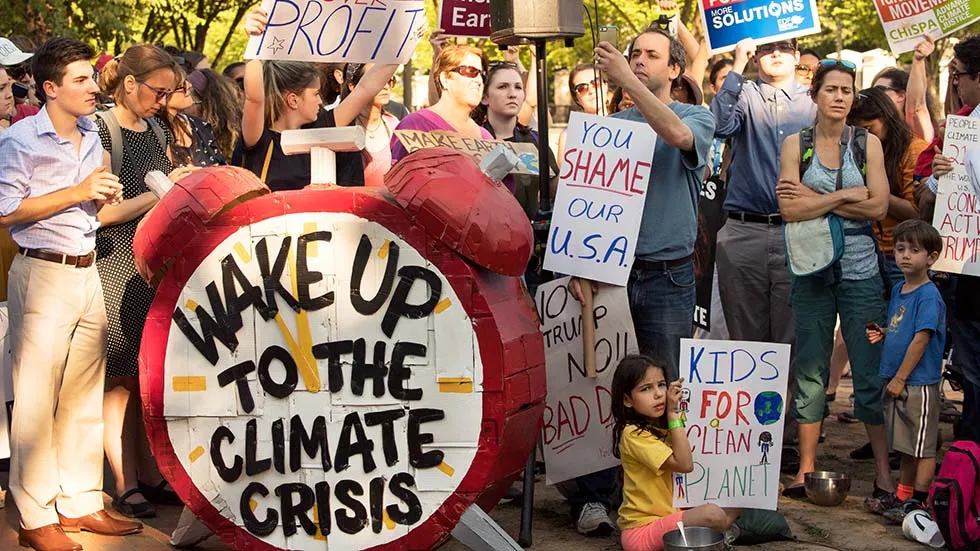Britain’s most senior paediatrician has said that the climate crisis poses an “existential risk” to the health and wellbeing of all children and action to tackle it is needed immediately.
Dr Camilla Kingdon, the president of the Royal College of Paediatrics and Child Health (RCPCH), said that every adolescent was at grave risk from the physical and mental effects of the climate crisis.
She added that healthcare professionals were already seeing its impact first-hand. According to her, air pollution, extreme weather and unprecedented energy costs were having a very real and detrimental effect on millions of children. “But as a country we have our “heads in the sand” when it comes to the climate crisis,”she said.
Kingdon took a swipe at what she described as the rolling back of net zero policies by Rishi Sunak and said the country’s most vulnerable children would be left bearing the greatest burden as a result.
Multiple studies have found that rising temperatures around the world as a result of the climate crisis are having a devastating effect on foetuses, babies and children.
Read also: New study shows G20 countries fail to integrate air quality into climate plans
Scientists have also determined the climate emergency is causing – among other adverse outcomes – an increased risk of premature birth and hospitalisation of young children as well as weight gain in babies. Research shows pollution can stunt children’s lung growth, cause asthma and affect blood pressure, cognitive abilities and mental health.
“Climate change is no longer tomorrow’s problem, it’s today’s,” Kingdon said. “Healthcare professionals across the UK are already seeing its impact first-hand.”
In the UK for instance, air pollution was the largest environmental risk to public health, she added. “Children breathe faster, so they inhale more airborne toxins in proportion to their weight than adults exposed to the same amount of air pollution. As such, they are especially vulnerable to air pollution, which can lead to asthma in childhood, and lifelong health issues.”
The damage inflicted on children by the climate crisis was not limited to physical ill health, Kingdon said. “The mental health effects of climate change on children are significant and may be long lasting.
“Children exhibit high levels of concern over climate change and the mental health consequences, including post-traumatic stress disorder, depression, anxiety, phobias, sleep disorders, attachment disorders and substance abuse, can lead to problems with learning, behaviour, and academic performance.”
Speaking further, Kingdon said that as a result of glaring health inequalities in the UK, some children were suffering the ill-effects more than most. “Climate change poses an existential risk to the health and wellbeing of all children. However, the current impacts of climate change are not experienced equally.”
Low-income households had less choice in where they live, were more likely to live in deprived areas and were therefore more exposed to extreme weather events and poorer air quality, she added.
Story was adapted from the Guardian.
